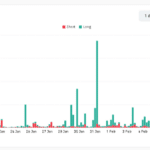By Judy Chen and Belinda Cao
Dec. 1 (Bloomberg) -- China’s yuan fell the most since the government ended a fixed exchange rate in 2005, supporting the nation’s exporters three days before U.S. Treasury Secretary Henry Paulson visits Beijing.
The currency declined 0.7 percent after the People’s Bank of China set the daily reference rate at the weakest level since August, prompting speculation policy makers favor a depreciating currency to spur demand for Chinese goods. An industry report showed China‘s manufacturing contracted by a record last month amid recessions in the U.S., Europe and Japan.
China’s government has shifted focus from stemming inflation to sustaining growth, after the world’s fourth-biggest economy expanded 9 percent in the third quarter, the slowest since 2003. President-elect Barack Obama said China must stop manipulating the currency in a letter to the National Council of Textile Organizations released on Oct. 24.
“Paulson may be in for an unpleasant surprise on his visit,” said Dariusz Kowalczyk, a currency analyst with CFC Seymour Ltd., a Hong Kong-based securities house focused on emerging markets. “It’s very likely that they will make a major policy shift. Without a weaker currency, it will be very tough to achieve next year’s growth target.”
The yuan slid 0.73 percent to 6.8848 a dollar, the weakest close since June 17 in Shanghai, from 6.8349 late last week, according to the China Foreign Exchange Trade System. The yuan will weaken to 6.95 to the dollar by the end of this year and fall to 7.15 by the end of 2009, Kowalczyk forecast.
The yuan has now lost all the gains it made since the two governments last held trade talks in mid June, after it advanced 6.6 percent in the first half of 2008. A central bank spokesman, who declined to be named, said he hadn’t heard any change to China’s “principles on foreign-exchange policy.”
Paulson Talks
The yuan has appreciated 20 percent since a peg against the dollar was scrapped in July 2005, making Chinese shipments less attractive and eroding exporters’ profits. Two-thirds of China’s small toy exporters shut down in the first nine months of this year, the customs bureau said in a report on Nov. 24.
The fifth round of the U.S.-China Strategic Economic Dialogue will be in Beijing on Dec. 4 and 5 before Obama’s inauguration next month. The previous round was in Annapolis, Maryland in mid-June. Paulson has refrained from accusing China of manipulating its currency to make exports more competitive, while lawmakers, including Senator Charles Schumer, a New York Democrat, proposed sanctions unless yuan controls are loosened.
The yuan had remained stable since the collapse of Lehman Brothers Holdings Inc. on Sept. 15 as investors hoarded cash and dumped emerging-market assets. South Korea’s won plunged 23 percent, the Brazilian real slumped 22 percent and Russia’s ruble fell 8.6 percent in the same period. A report showed Russian manufacturing declined more in November than during the 1998 financial crisis.
‘Very Dangerous’
“That would be very dangerous if China wants to spur the economy by weakening the currency,” said Frank Gong, head of China research at JPMorgan Chase & Co. in Hong Kong, “The central bank should take actions tomorrow to weaken the market’s depreciation expectation, otherwise another round of regional currency depreciation may follow.”
The central bank fixed the reference rate for yuan trading at 6.8505 today, the lowest since Aug. 21. The currency is allowed to trade by up to 0.5 percent against the dollar either side of the reference rate. Today it dropped by 0.498 percent from that level.
“Today’s reference rate is totally unexpected,” said Yang Lindong, a foreign-exchange trader at Shenzhen Development Bank Co. in Shenzhen. “The central bank may want to test the market’s response to the possibility of a weaker yuan, but most likely it will keep the currency stable till the end of this year.”
Manufacturing Index
The Purchasing Managers’ Index fell to a seasonally adjusted 38.8 in November from 44.6 in October, the China Federation of Logistics and Purchasing said today in an e-mailed statement. Export orders, output and new orders all contracted by the most since the survey began in 2005. A survey conducted by CLSA Asia-Pacific Markets also showed a record contraction.
The CSI 300 Index of stocks has fallen 69 percent from a record in October last year and President Hu Jintao describes the economic situation as a test of the Communist Party’s ability to govern.
Non-deliverable forward contracts show traders are betting that the yuan will depreciate 4.7 percent to 7.2250 per dollar in a year. Forwards are agreements in which assets are bought and sold at current prices for settlement at a later-specified time. Non-deliverable forwards are settled in dollars rather than the underlying asset.
Economists are more bullish on the currency for later next year. The yuan will strengthen 2.3 percent to 6.7 by the end of 2009, according to a Bloomberg survey of 28 analysts. They forecast the currency will end this year at 6.81.
Monday, December 1, 2008
Subscribe to:
Post Comments (Atom)



No comments:
Post a Comment